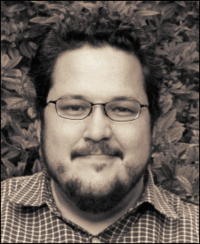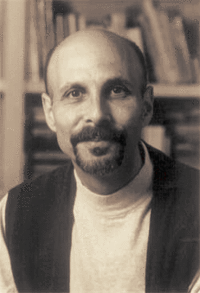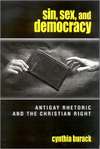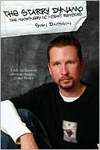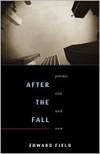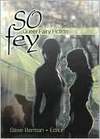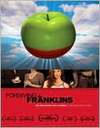Confessions of a Kosher Rice Queen
by Anonymous
This is a companion essay with "The Gay Jewish-Asian Thing"
The first time I heard the term, I’d just finished hooking up with a guy I met on AOL. “So, are you a Rice Queen?” he asked, mopping up some of the fluids.
“Huh?” I replied. But then I figured it out, and started to laugh, proceeding to loudly deny that I was any such thing. Even though, as my trick pointed out, we’d met in GAM4GWM. What was I doing there, if I wasn’t a rice queen?
Rice Queen: White guy who likes Asian guys. I get it. (Later I learned the term ‘Potato Queen,’ which is the reverse. I didn’t like being thought of as a potato.)
Am I one? For a while, I thought of Asian guys as being “just for practice.” That’s what, growing up a nice Jewish boy in middle class America, we were told shiksas (non-Jewish girls) were for: Practice. When you’re done practicing, you find yourself a good JAP and settle down in the suburbs—that’s JAP, Jewish American Princess, not Jap, the Asian slur. It’s a dehumanizing idea, of course, that a certain kind of person is an object "for practice," but then, what about being a nice, closeted Jewish boy in middle class America wasn’t dehumanizing?
The concept transferred easily to Asian guys, because of the sense of Otherness, just as there had been about shiksas. Plus, for whatever reason, they were easier to score.
But I think it was always more than that. When I was still in my coming out process, I was attracted to Asian guys for reasons that I suspect most Rice Queens are, but refuse to publicly admit it: we Potatoes saw Asians as being like girlie-men. For someone still struggling with sexual attraction to men, Asians are kind of, you know, in-between. Those lithe Japanese boys, the skinny Vietnamese kids. So smooth…so boyish…such tight asses, and small cocks. I mean, they’re almost girls, aren’t they?
So runs the stereotype and, I think, so runs the subconscious thought-process. They’re smooth, so that means they’re effeminate, so that means they’re almost feminine. Maybe Asian boys really are for practice—practice for how to be Gay. Of course, this, too, is dehumanizing, and outrageous, and something close to racist. Which is why it is never spoken.
Since my taste for rice has endured well past my coming out, I think there’s more to it than that, thankfully. What I’ve come to see is a little more subtle, and more personal: that all these smooth, smart, geeky boys resemble no one so much as myself, when I was sixteen and scared. Their bodies look just like the ones I desired as a teenager—the studious, slim, smooth Jewish yeshiva boys, pre-vulgarization, pre-college, still very much dreaming of their mother’s wombs.
Let me be clear that I neither buy into nor condone the stereotyping of Asian men as effeminate, or small in size, or bottom in position. But, having said that, let’s also admit that most stereotypes have a grain or two of truth about them, and this one is no exception, at least in my experience. There’s a reason we gravitate toward certain types, even as we hopefully realize those types are generalizations, not prescriptions.
And, obviously, stereotypes work both ways, not least when two men are looking to meet a certain "type." One time, a Japanese guy I was with said he admired Jewish men because “there are so few of you, but you control, like, the whole world.” Another time, a Korean guy told me that his parents said he could only marry another Korean—except if the girl was Jewish. He said, “It’s because you’re so smart, and good with money. You’re much smarter than most white people.” You, plural, I assumed.
My own projected image of the young, innocent Asian as doppleganger for my younger, more innocent self is quite at odds with another myth: that of the mysterious, mystical, inscrutable Oriental. If my dates are any guide, I’m far less scrutable, and more mystical, than most of the Asian tricks I’ve met. I sit long meditation retreats at Buddhist monasteries, I love Zen architecture and design. While I have no illusions about the genocidal Chinese government, I probably do have a few about the enlightened Tibetans. I try not to be one of those silly European Asiaphiles—but I can handle the criticism.
Yet when I’m with some Vietnamese boy, I’m not thinking of Thich Nhat Hanh, or even pad thai. My thoughts are mostly superficial: legs, hair, chest, dick. And a little emotional: vulnerability, lightness. But nothing deeply connected to religion, history, or culture. It’s almost as if the two myths never touch one another.
Or maybe those ‘superficial’ thoughts are actually clues to something that lies deeper than Chinese food or pagodas. On the cultural level, yes, Jews and Asians share an Otherness to mainstream WASP culture—but it’s an Otherness very different from the experience of African-Americans or Latinos. In our myth, we basically made it; in theirs, the struggle goes on. Jews love to whine about anti-semitism, of course, but, well, we actually do control a disproportionate share of wealth. And we see in Asians the traits which got us here: brains, hard work, bookishness, determination. Let the Italians get tough and the WASPs drink their gin and tonics. We got into Harvard because we earned it—and we see in Asians the “new Jews.” It isn’t just that Jews have always loved Chinese food. We see ourselves in them.
But there is something still deeper at work. Jewish men aren’t just Other to WASP culture—they’re Other to straight culture as well. Jews snicker when they read about Goldstein, the Jewish wrestler. We idolize the few who have broken into athletic superstardom—Sandy Koufax has a permanent seat on our collective bima. And we love to note the secret Jewish names of famous Hollywood actors, closeted kikes who have passed for WASP. We know that the typical Jew is a book-reading intellectual; that’s why Gene Simmons’ Israeli accent is so funny to us. Israeli machismo is a joke precisely because it is Jewish machismo, which is an oxymoron. So when queer Jews look into the Oriental Mirror, they see themselves not only culturally, but physically, sexually as well.
Like Judaism’s medieval rabbis, who glossed "athletic" as "wicked," I find machismo to be a turnoff. Like the Kabbalists, I think androgyny is hot. Security and confidence are overrated; I crave vulnerability. I think, when I look into the brown eyes of my Asian lover and hold his delicate fingers in my hand, I see a reification of my own Jewish resistance to the norms of goyish masculinity. To hell with blue eyes and Aryan cocks. We’re turned on by the tentativeness, the fragility, and the intellectualism, because underneath those shared traits, hiding under a tantalizing shell of shyness, there is a deeper affinity. If those smart boys are anything like me, they’re horny as hell.
This is just an excerpt from this issue of White Crane. We are a reader-supported journal and need you to subscribe to keep this conversation going. So to read more from this wonderful issue SUBSCRIBE to White Crane. Thanks!
The author lives in New York City.

